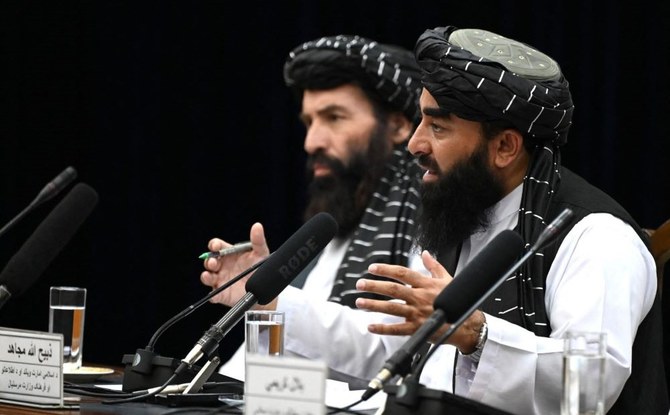
One of the major findings of a new UN report on militant groups in Afghanistan is that the Taliban and Al-Qaeda are cooperating closely.
This is no surprise; the Taliban once sheltered Osama bin Laden and other top Al-Qaeda figures, and has long been close to the group. Since 2001, the Taliban leadership has conferred often with Al-Qaeda officials, for example on joint operations against NATO troops in Afghanistan. A West Point study in 2011 said the Haqqani network, a particularly powerful and brutal faction of the Taliban, functioned with Al-Qaeda “as an interdependent system.”
However, what makes the UN report significant is that the US government signed an agreement with the Taliban inFebruary that obliges the militants to deny space to international terror groups. Al-Qaeda, in fact, is the only terror group the agreement mentions by name. The Taliban, the agreement reads, will “prevent any group or individual, including Al-Qaeda, from using the soil of Afghanistan to threaten the security of the US and its allies.”
Under the agreement, the Taliban must tell its members not to cooperate with such groups, and prevent them from “recruiting, training, and fundraising.” More broadly, the agreement says the Taliban will not host such groups.
Nevertheless, the UN report concludes that Al-Qaeda has up to 600 fighters active across a dozen provinces and manages training camps in eastern Afghanistan. It also chronicles recent communications between Taliban and Al-Qaeda officials— including a meeting between Taliban representatives and Ayman Al-Zawahiri, the leader of Al-Qaeda, a few days before the Taliban signed its deal with America. But perhaps the most damaging revelation in the study is that the Taliban regularly consulted Al-Qaeda during its talks with America and “offered guarantees that it would honor their historical ties.” The Taliban, according to the report, has also promised a continued haven to Al-Qaeda in Afghanistan.
One of the major findings of a new UN report on militant groups in Afghanistan is that the Taliban and Al-Qaeda are cooperating closely.
Michael Kugelman
In effect, the UN’s findings strongly suggest that the Taliban is violating its agreement with America. All the more troubling is that the agreement doesn’t ask much of them; it requires the insurgents to begin a dialogue with the Afghan state, which the Taliban has pledged to do once the Afghan government has concluded a prisoner release arrangement. The other stipulation is the one on counterterrorism. Once the Taliban has demonstrated it is addressing these two demands, the US will withdraw its remaining troops by the end of April 2021.
Theoretically, the UN report could jeopardize a US-Taliban deal that was meant to pave the way for long-awaited peace talks between the Taliban and the Afghan government. Washington badly wants these talks to start as it accelerates its troop withdrawals.
Not surprisingly, US officials — especially when there is fresh momentum for peace talks after the Eid cease-fire — have offered little public reaction to the report. Zalmay Khalilzad, the US special envoy for Afghanistan reconciliation, noted that the study relied on data collected until March 15, only two weeks after the deal was signed. And yet the report offers little reason to believe that Taliban/Al-Qaeda cooperation has abruptly ended in the weeks since then.
Additionally, the US-Taliban agreement has secret annexes that may well offer additional information on the Taliban’s counterterrorism obligations — and any such obligations may well be more lenient than those in the agreement’s public document.
With the Trump administration moving full speed ahead toward the exits in Afghanistan — the president wants to have all troops home by election day in November — it is unrealistic to expect Washington to halt its troop withdrawals simply because of a single UN report.
However, at the very least, Washington owes it to the Afghan people — and to the US soldiers who first went toAfghanistan nearly two decades ago to eliminate Al-Qaeda — to redouble efforts to get the Taliban to abide by the counterterrorism commitments stipulated in the agreement. To that end, the US government should advise Kabul to hold off on completing its release of Taliban prisoners until the insurgents have clearly demonstrated that they are scaling back their ties to Al-Qaeda.
In reality, America is destined to leave Afghanistan no matter what the Taliban/Al-Qaeda relationship looks like. But this doesn’t mean Washington should simply ignore what appears to be the Taliban’s blatant violation of its agreement with the US.
Michael Kugelman is deputy director of the Asia Program and senior associate for South Asia at the Woodrow Wilson International Center for Scholars. Twitter: @michaelkugelman
Disclaimer: Views expressed by writers in this section are their own and do not necessarily reflect Arab News" point-of-view












